If you don’t have time to blog about reform, just add your voice to the Voicethread below and answer a simple question:
What do YOU think should be done about reform.
(original photo by Aussiegall)
Education ∪ Math ∪ Technology
If you don’t have time to blog about reform, just add your voice to the Voicethread below and answer a simple question:
What do YOU think should be done about reform.
(original photo by Aussiegall)
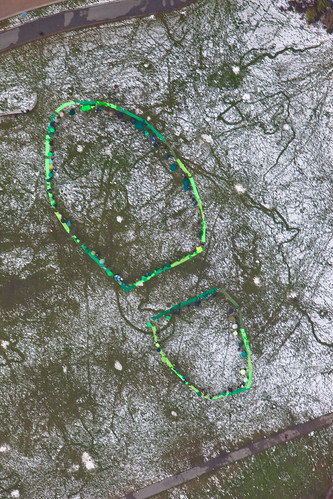 Today I participated in an event which was held simultaneously held in 16 other cities around the world organized by 350.org and the Vancouver Public Space Network.
Today I participated in an event which was held simultaneously held in 16 other cities around the world organized by 350.org and the Vancouver Public Space Network.
On a very cold day in Vancouver, we headed to David Lam park and stood around a field holding green umbrellas. We arrived early in the morning and draped green across our umbrellas and held them up in the air. Our objective was to focus attention on climate change and participate in a community building activity.
My son was a little trouper for most of the event, but eventually we went to a nearby coffee shop, grabbed a hot chocolate to fortify ourselves, and then came back to the field just in time to be photographed from space and from an airplane.
Human beings are capable of organizing themselves into such intricate and amazing patterns. This particular project was dealing with climate change, which is a serious issue for our planet. The reform over how we utilize resources on our planet is under way and although it has not made enough of an impact to slow climate change, already there are many things that we do differently because of it.
Similarly our entire education system is a such an amazing machine when you look at all of its pieces. So many different people have to cooperate to make our education system run.
There is something fundamentally wrong with the machine though because it is no longer functioning as it should. The machine was built for a very different world than the one in which we live. Just like we need to change how we consume everything our planet has to offer, we need to change how we educate our youth. The changes that are needed for either problem are not small, they will require wholesale rethinking of our resource and education systems. We need to rebuild our machines.
The problem is that both of these machines have a tremendous amount of inertia behind them. Most people who are bound by these systems can’t see a different way of doing business. Worse, even those who have the ability to step outside the box and visualize these problems from a different perspective cannot agree on what that perspective should be. We are trapped by our inertia and it will only be through great effort and quite possibly sacrifice that we will solve either of these problems.
We must solve these problems. It is not acceptable that we continue to plunder our planet the way that we are whether or not you believe that we are causing great damage to our climate. It is similarly not acceptable that our schools are not preparing our students properly for life. The machines of education and resource management do not require some grease or some minor fixes to start working again. Both of them need to be rebuilt completely.
Thankfully, there is hope. So many people came together today to support a climate change awareness initiative and so many continue to work on solving this important problem. Similarly there are so many educators now who are aware of the issues we are having in education, and who are working to try and affect changes in their schools. The only question will be, will we be able to make the changes we need before both systems collapse completely?
We have been having a lot of discussion on #edchat and in the educational blogosphere about the state of education. We basically have two camps, one of which believes that what we need is more accountability and assessment of students. We’ll call that camp A. The other camp believes we need a model which includes more personalized instruction, a focus on skills more than content, and that we need to use of real world tools in education. We’ll call that camp B. You might be somewhere between camp A and camp B, but most people I’ve heard give an opinion are either in A or B.
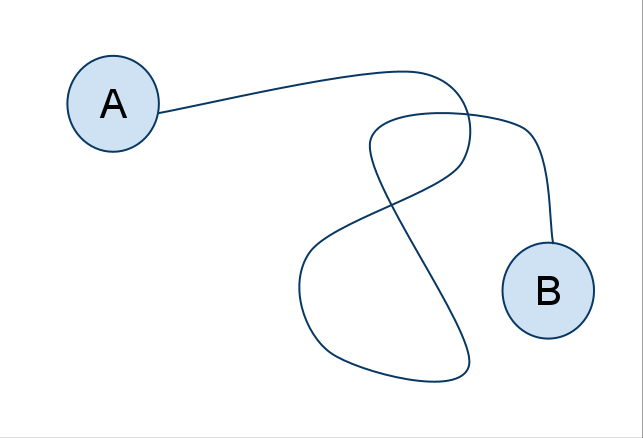
The problem is, I don’t see many people talking about how you get from camp A to camp B. We need to talk more about the route between what we are doing and what we would like to see. You can get people to agree with your vision, but unless you give them some idea on how to get there, they aren’t going to follow you.
I think that the relationship between formative and summative assesment looks like the following.
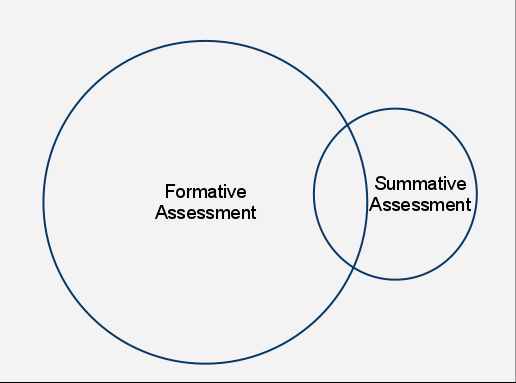
According to Wikipedia:
Formative assessment is a self-reflective process that Intends to promote student attainment. Cowie and Bell define it as the bidirectional process between teacher and student to enhance, recognize and respond to the learning. Black and Wiliam consider an assessment ‘formative’ when the feedback from learning activities is actually used to adapt the teaching to meet the learner’s needs. Nicol and Macfarlane-Dick have re-interpreted research on formative assessment and feedback and shown how these processes can help students take control of their own learning (self-regulated learning).
Summative assessment (or Summative evaluation) refers to the assessment of the learning and summarizes the development of learners at a particular time.
Summative assessment is characterized as assessment of learning and is contrasted with formative assessment, which is assessment for learning.
Is my graph appropriate? Is it possible to have an assessment which is both used to guide the learning process and help the learner is therefore formative and also be a snap-shot of what the learner knows? Or are formative and summative assessment mutually exclusive?
This is just a brief presentation I’m giving tomorrow to the 8th grade students at my school called "Facebook & Privacy".
I’m presenting to a 5th grade class this Friday on using PowerPoint as a presentation tool, most of whom will have never used PowerPoint. I’m going to start with a discussion of what a bad PowerPoint presentation looks like, using the model I’ve created below (which I have in video format). Later on in the year I’ll be presenting on a variety of different presentation tools. We are just starting with PowerPoint because it is on each of the computers in our mobile lab.
The next step, I’m going to give the students a few pointers, via laminated diagrams, on how to do a few basic things in PowerPoint. After that, the students will be given a PowerPoint scavenger hunt, basically a "Figure out how to make this slide" series of activities.
I see two flaws with this lesson plan so far so I have a couple of questions.
What can I do to extend this for students who finish early? How can I build more inquiry into this lesson?
One of the parents of a child I taught last year shared this with me. Here is what I think the math class should look like. Forget teaching kids computation, especially when a computer can do it faster, cheaper, and more reliably.
This classroom more closely resembles Dan Meyer’s math classroom where students are expected to formulate problems but taken to a further degree. Let’s do away with the repetitive tasks that a computer can easily do by hand, make sure all students have those devices that they need to do these repetitive tasks, and then focus on how to use the computations in the real world.
If a person can be arrested for making a claim on Twitter that they will "blow up an airport", how can it be okay in our society to incite hatred against a group of people? I saw the comment below on a story on Yahoo about the courageous kid, Graeme Taylor, who stood up for his teacher.

This kind of hatred is unacceptable in our society. It is unacceptable to me that we will prosecute and incarcerate someone for what is obviously a joke, but that we let millions of hate-filled comments about the #LGBTQ community pass. There is something wrong with a free speech law which will let hatred stand uncontested and unprosecuted.
We live in a messed up world and need to rethink our priorities.
The old paper form of a textbook is certain to die. I’m sure of it.
The new form of a "textbook" has a feature list that turns the textbook from something people read to something people experience. Note that this feature list isn’t fantasy, nearly all of these features already exist in some form.
Here are the features I think every textbook should have.
What else would you like to see in a textbook?
Our students need to move from a world where this is the test for which they prepare:
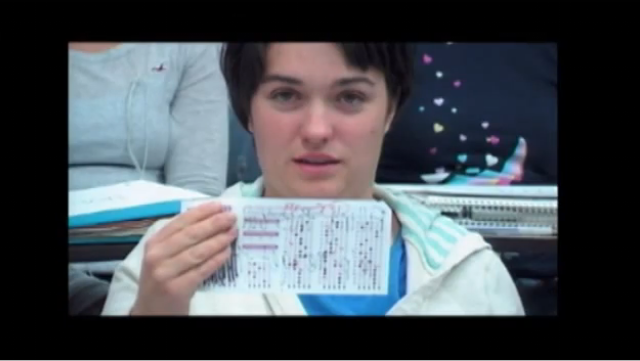
into a world where this is the test for which they prepare:
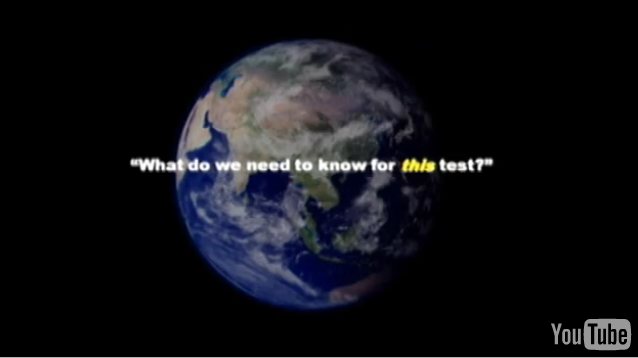
This idea and these two pictures are part of an amazing TED talk at TEDxKC given by Dr. Michael Wesch which you can watch below.
You may remember that Dr. Michael Wesch is the same person who organized the terrific video "A Vision of Students Today" which I have embedded below.
We need to recognize as educators that our duty is to prepare students for the world, whatever that may look like. We can give them as much content knowledge as we like, but if they don’t have the literacies described in Dr. Wesch’s TED talk, they won’t be successful.